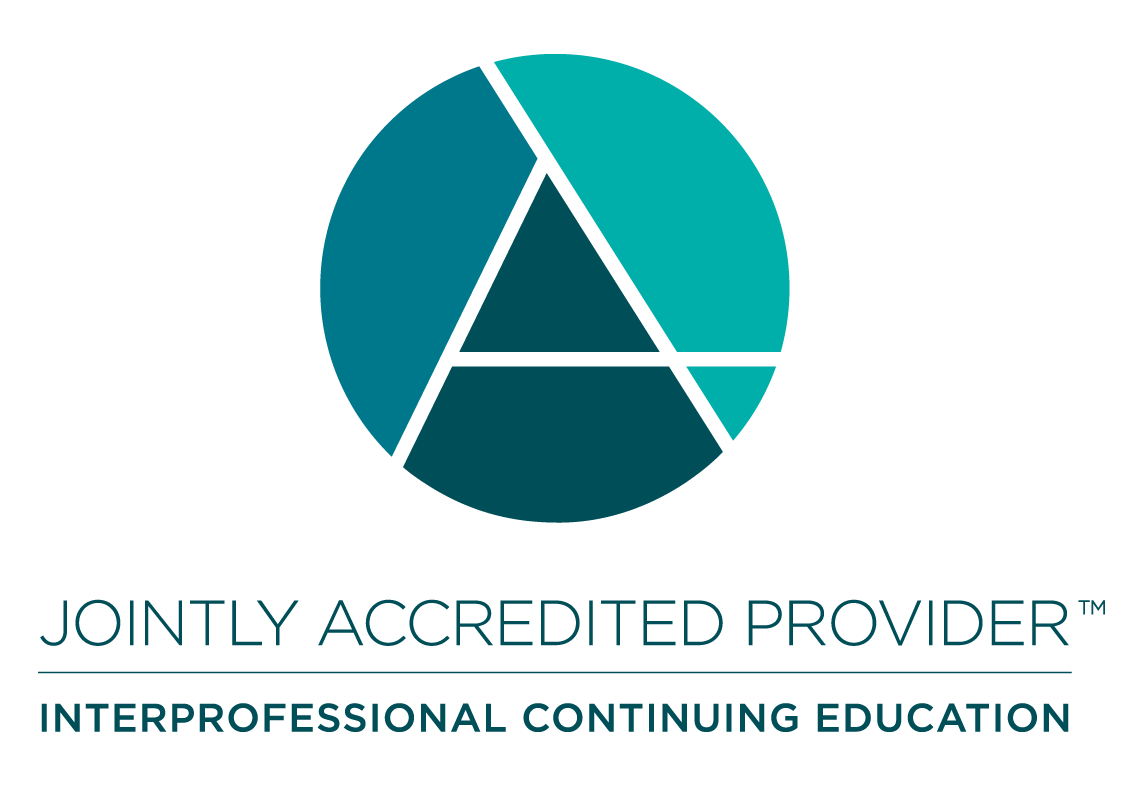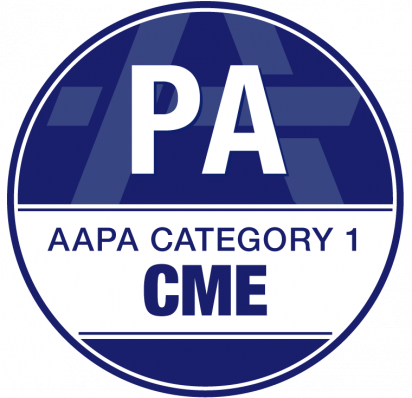
Prescribing Medications for Alcohol Use Disorder for Individuals with Liver Disease
-
Register
- Non-Member - Free!
- Regular Member - Free!
- Retired - Free!
- Early Career Physician - Free!
- Resident - Free!
- Student - Free!
- Associate - Free!
- ASAM Staff - Free!
- International Member - Free!
- Emeritus Member - Free!
- Provisional Member - Free!
- Fellow Member - Free!
- Honorary Member - Free!
- CRT Member - Free!

Prescribing Medications for Alcohol Use Disorder for Individuals with Liver Disease
Developed in Collaboration with the Providers Clinical Support System - Medications for Alcohol Use Disorder
Recorded: Thursday, April 4, 2024 to Sunday, April 7, 2024
On-Demand Session
Overview
This 75-minute on-demand session from the ASAM 55th Annual Conference addresses the nuanced realm of prescribing medications for alcohol use disorder (MAUD) for individuals with liver disease.
Medications for alcohol use disorder (MAUD) are highly effective in treating alcohol use disorder (AUD). However, they remain grossly underutilized, particularly for patients with alcohol-associated liver disease. This session will build foundational knowledge and healthcare professionals' capacity to navigate the nuanced realm of prescribing MAUD for individuals with liver disease. The presenters will highlight evidence-based strategies, pharmacologic modalities, and clinical approaches that successfully maintain the delicate balance between effective AUD treatment and management and the safeguarding of liver function.
The target audience for this Introductory level session includes physicians, nurse practitioners, physician assistants, other clinicians, researchers, residents, fellows, students, and counselors.
This session addresses the following ACGME Competencies: Patient Care and Procedural Skills, Practice-based Learning and Improvement
This session addresses the following ICPE Competencies:Roles and Responsibilities, Interprofessional Communication, Teams and Teamwork
Learning Objectives
Upon completion, learners will be able to:
- Recognize PCSS-MAUD and opportunities for engagement by ASAM members
- List FDA approved medications for alcohol use disorder (MAUD) and their number needed to treat
- Describe clinical reasoning to determine safety for use of MAUD in individuals with liver disease
Registration Rates
| Rate Description | Rate |
| ASAM Member | $0 |
| Non-Member | $0 |
| Associate Member | $0 |
| Resident Member* | $0 |
| Student Member* | $0 |
*Residents, Fellows-in-training, Interns, and Students must join ASAM to receive a discounted registration rate. Click here to become an ASAM member. National and Chapter membership dues apply. There is no charge for Students to become a Member, but verification of student status is required.
Membership Question? Call ASAM at 1.301.656.3920, email us, or view the ASAM website for more information.
Refunds & Cancellations
All ASAM eLearning Center refund requests must be made in writing to education@asam.org within 90 days of purchase. Those requesting refunds for courses that are in progress will receive partial refunds or e-Learning Center credit. Automatic full refunds will be made for any course with a live-course component that has been cancelled.
Registration Open: 05/06/2024 - 04/06/2027
User Access Closed: 05/06/2027
Session Instructions
- Click on the Contents tab to watch the on-demand recording.
- Click Complete Post Test to answer multiple choice questions. Participants will have 10 attempts to pass and must answer 4 out of 5 questions correctly.
- Click Complete Evaluation to provide valuable activity feedback. Scroll down on all questions as there may be answer options that expand past the size of the window.
- Click the button Claim Medical Credits in the box titled Claim Credits & Certificate. Choose the type of credit and click submit. Click the button View/Print Certificate to save or print your certificate. You can view/print your certificate at any time by visiting the ASAM eLearning Center, clicking Dashboard, and clicking Transcript/Achievements.
Need Assistance?
For assistance logging in, accessing activities, claiming credit, or for other questions or concerns, please check the FAQ page or e-mail Education@ASAM.org
ASAM is proud to offer Essential Accessibility to ensure our website is accessible and functional for all our learners while providing free assistive technology for people with the widest possible range of abilities.
Melissa B. Weimer
DO, MCR, FASAM
Melissa Weimer is board-certified in Internal Medicine and Addiction Medicine. She is an Associate Professor of Medicine and Public Health and Associate Program Director of the Addiction Medicine Fellowship at Yale University. She is an expert in hospital-based care for patients with substance use disorders and has worked with colleagues to develop successful hospital-based Addiction Medicine Consult Services at both Oregon Health & Science University and Yale University/Yale New Haven Hospital. Dr. Weimer is also a national leader in Addiction Medicine education and has developed curricula for substance use disorder evaluation and treatment and safe and effective pain treatment. Dr. Weimer serves on the national board of ASAM and is the Chair of the ASAM Clinical Practice Guidelines Methodology and Oversight Committee.
No relevant financial disclosures.
Stephen Holt, MD, MS, FACP, FASAM
Associate Professor of Medicine (General Medicine); Associate Program Director, Ambulatory Education
Yale School of Medicine
Dr. Holt has been an attending physician at Yale-New Haven Hospital since 2008 and is an Associate Professor of Medicine at Yale School of Medicine. He is the Director of the Yale Addiction Recovery Clinic and the Associate Program Director for Yale's Primary Care Internal Medicine Residency Program. He is board-certified in Addiction Medicine and Internal Medicine. He has published and lectures frequently on a variety of addiction medicine topics, and has won numerous teaching awards at the local, regional, and national level.
No relevant financial disclosures.
Accreditation & Credit Designation Statements
Joint Accreditation Statement

In support of improving patient care, the American Society of Addiction Medicine is jointly accredited by the Accreditation Council for Continuing Medical Education (ACCME), the Accreditation Council for Pharmacy Education (ACPE), and the American Nurses Credentialing Center (ANCC), to provide continuing education for the healthcare team.
Physicians
The American Society of Addiction Medicine designates this enduring material for a maximum of 1.25 AMA PRA Category 1 Credits™. Physicians should claim only the credit commensurate with the extent of their participation in the activity.
Nurses
This activity awards 1.25 Nursing contact hours.

PAs
ASAM has been authorized by the American Academy of PAs (AAPA) to award AAPA Category 1 CME credit for activities planned in accordance with AAPA CME Criteria. This activity is designated for 1.25 AAPA Category 1 CME credits. Approval is valid until 05/06/2027. PAs should only claim credit commensurate with the extent of their participation.
Social Workers
As a Jointly Accredited Organization, ASAM is approved to offer social work continuing education by the Association of Social Work Boards (ASWB) Approved Continuing Education (ACE) program. Organizations, not individual courses, are approved under this program. Regulatory boards are the final authority on courses accepted for continuing education credit. Social workers completing this course receive 1.25 general continuing education credits.
IPCE Credit
This activity was planned by and for the healthcare team, and learners will receive 1.25 Interprofessional Continuing Education (IPCE) credits for learning and change.
California Association for Drug/Alcohol Educators (CAADE)
This educational program is approved by CAADE: #CP40 999 1225.
California Association of DUI Treatment Centers (CADTP)
This educational program is approved by CADTP: #205.
California Consortium of Addiction Programs and Professionals (CCAPP)
This educational program is approved by CCAPP: #OS-20-330-1224.
Continuing Education Credits (CEUs)
Upon completion of the activity and online evaluation, all other participants may request a certificate of participation. Participants may submit this certificate of participation to their professional organization/institute as documentation for completing this accredited continuing activity.
Maintenance of Certification (MOC) or Continuing Certification Programs (CCP)
This activity meets the requirements for MOC/CCP for the following primary physician boards and for state licensing CME requirements. MOC Credit is only reported for ABA, ABP, ABIM, and ABS. By completing the online credit application and evaluation, the learner permits ASAM to report credits to the appropriate Board. Learn more.
- American Board of Medical Specialties (ABMS)
- American Board of Preventive Medicine (ABPM)
- American Board of Internal Medicine (ABIM)
- American Board of Pediatrics (ABP)
- American Board of Surgery (ABS)
- American Board of Psychiatry and Neurology (ABPN)
- American Board of Addiction Medicine (ABAM)
- Royal College of Physicians and Surgeons of Canada (RCPSC)
- Through an agreement between the Accreditation Council for Continuing Medical Education and the Royal College of Physicians and Surgeons in Canada, medical practitioners participating in the Royal College MOC Program may record completion of accredited activities registered under the ACCME’s “CME in Support of MOC” program in Section 3 of the Royal College’s MOC Program.
Disclosure Information
In accordance with disclosure policies of ASAM and Joint Accreditation, the effort is made to ensure balance, independence, objectivity, and scientific rigor in all CME/CE activities. These policies include mitigating all relevant financial relationships with ineligible companies for the Planning Committees and Presenters. All activity Planning Committee members and Presenters have disclosed all financial relationship information. The ASAM CE Committee has reviewed these disclosures and determined that the relationships are not inappropriate in the context of their respective presentations and are not inconsistent with the educational goals and integrity of the activity. Click here to view the full disclosure listing.

